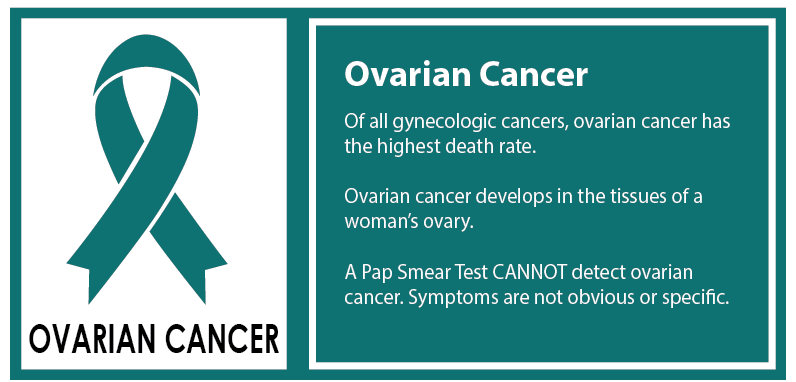Ovarian Cancer
Ovarian cancer is the seventh most common cancer that affects women around the world. About 3.6 percent of all cancers reported in women are ovarian cancer. Ovaries are two in number and are located on either side of the uterus in the lower abdomen. They are responsible for producing ova/eggs as well as female hormones. There are a few different cancers of the female reproductive system that originate in the ovaries. Here is an overview of what this cancer is all about, symptoms, risk factors and possible treatment options.
What is ovarian cancer?
Ovarian cancer is cancer that originates in the ovarian lining or epithelial cells. These cells develop into tumors either on the ovarian wall, the fallopian tubes or even the lining of the abdomen, known as primary peritoneal. Since they all originate in ovarian cells, they are all considered as one type pf cancer.
There are some cancers that originate from inside the ovaries as well, like sex cord stromal cancer and germ cell cancer. These are extremely rare and found in very few people. Borderline ovarian tumors usually do not spread much and do not require much treatment.
Symptoms of ovarian cancer
Symptoms are usually absent in early stages of ovarian cancer, making an appearance only once the cancer progresses.
Clearly, the symptoms are extremely vague and non-specific and cannot be considered as indicative of ovarian cancer.
There are no diagnostic procedures or tests that can accurately recognize and pinpoint ovarian cancer, and it is usually up to the doctors and their expertise to recognize this cancer in its early stages.
Causes of ovarian cancer
These are risk factors, although no one knows what exactly causes ovarian cancer. This type of cancer grows and multiplies very quickly, metastasizing to nearby organs in no time. Due to difficulty of diagnosis, this delays detection and proves to be fatal in many cases.
Treatment of ovarian cancer
Surgery and chemotherapy are usually the two most recommended and used treatments for ovarian cancer. The order in which these treatments are carried out depends on the prognosis and the doctors treating you.
What is ovarian cancer?
Ovarian cancer is cancer that originates in the ovarian lining or epithelial cells. These cells develop into tumors either on the ovarian wall, the fallopian tubes or even the lining of the abdomen, known as primary peritoneal. Since they all originate in ovarian cells, they are all considered as one type pf cancer.
There are some cancers that originate from inside the ovaries as well, like sex cord stromal cancer and germ cell cancer. These are extremely rare and found in very few people. Borderline ovarian tumors usually do not spread much and do not require much treatment.
Symptoms of ovarian cancer
Symptoms are usually absent in early stages of ovarian cancer, making an appearance only once the cancer progresses.
- Fatigue
- Swelling or fullness in different parts of the body, especially abdomen and legs
- Abdominal pain
- Pelvic area discomfort
- Feeling full quickly when eating
- Constipation and frequent urination
Clearly, the symptoms are extremely vague and non-specific and cannot be considered as indicative of ovarian cancer.
There are no diagnostic procedures or tests that can accurately recognize and pinpoint ovarian cancer, and it is usually up to the doctors and their expertise to recognize this cancer in its early stages.
Causes of ovarian cancer
- Longer ovulation cycle
- Menstrual cycles starting at a young age or ending late in life
- Never having had a child
These are risk factors, although no one knows what exactly causes ovarian cancer. This type of cancer grows and multiplies very quickly, metastasizing to nearby organs in no time. Due to difficulty of diagnosis, this delays detection and proves to be fatal in many cases.
Treatment of ovarian cancer
Surgery and chemotherapy are usually the two most recommended and used treatments for ovarian cancer. The order in which these treatments are carried out depends on the prognosis and the doctors treating you.

